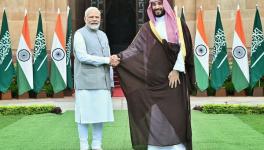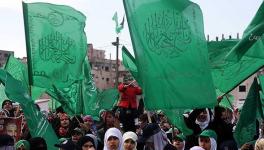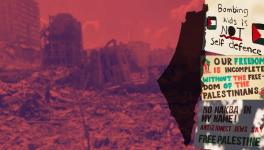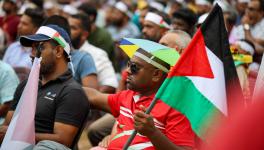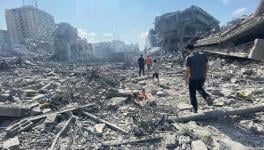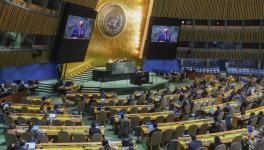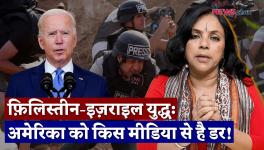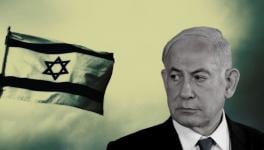Of Stupid Men and Smart Machines
It is too early to know the definitive story of what led to Tuesday’s protests at the US embassy in Cairo and the brazen attack on the US consulate in Benghazi later that night that killed four Americans, including Ambassador Christopher Stevens.
As protests threaten to spread, what emerges through the dense speculative fog of the aftermath of Tuesday’s attacks is that the violence cannot be ascribed to any single cause. It was the result of a deadly confluence of factors: fanaticism from Islamophobes and fringe Islamists, sectarian and political tensions in Egypt, a heavily militarized post-revolution society in Libya, and, potentially, the grave consequences of the Obama administration’s drone warfare.
The distasteful film that sparked the protests in Cairo was made and supported by a loose network of Islamophobic individuals based in the United States. The man reportedly behind the poorly made film, Nakoula Basseley Nakoula, is a Coptic immigrant to California who managed an obscure company that produced Innocence of Muslims. Nakoula may have even posed as an Israeli-American real estate developer named Sam Bacile to whom initial reports had traced the film. A convicted financial fraudster, Nakoula apparently misled the eighty-member cast and crew who were hired for the film. In a statement issued on Wednesday they denounced the final cut, claiming they were never told the film was about Islam or the Prophet Muhammed and that their scripts were re-written and their voices dubbed over. The film was supported by a familiar cast of anti-Muslim hatemongers that include controversial Florida pastor Terry Jones, Coptic lawyer Maurice Sadek, and militant Christian activist Steve Klein.
Sometime in the last two months, a condensed Arabic version of the film available on Youtube caught the attention of Islamist ultraconservatives in Egypt. Snippets of the film seem to have first aired on El-Nas, a private religious satellite channel, earlier this month. Host Khaled Abdullah, a self-styled preacher notorious for his incendiary remarks about liberals, secularists, and Christians, used the occasion to rile up his viewers against expatriate Copts, whom he accused of seeking to instigate sectarian strife. Other extremist clerics like Wagdi Ghoneim joined the pugnacious chorus of incitement. In the following days, a Salafi coalition called for a protest in front of the US embassy in Cairo. According to organizer Wesam Abdel Warith, the intent was to counter insults against Islam through legal and peaceful means and had nothing to do with a similar action organized in Libya.
A few thousand turned up in Cairo, joined by a small group of Copts including slain activist Mina Daniel’s sister as well as clusters of Ultras, organized football fans who have long been at the forefront of protests against security forces. The Ultras have recently held numerous rallies to demand that those responsible for the massacre of seventy-four fans at the Port Said stadium in February be brought to justice. Many Salafis claim it was the young fans who scaled the walls of the US embassy and took down the American flag, flying at half-mast for the anniversary of the September 11 terrorist attacks. Meanwhile, mainstream Islamist groups like the Muslim Brotherhood and the Salafi Nour party have competed with each other in trying to capitalize on the popular outrage for political gain, with some of their top members calling for more protests and threatening legal action in the United States. (Among American commentators, the focus has been on the tardiness of President Mohammad Morsi’s rebuke of protesters and what it portends for US-Egyptian relations, with scant attention to the domestic dynamics within Egypt.)
In Benghazi, the protests took a much darker turn. As of Thursday morning, the attack appears to have been an ambush and not simply another case of an outpouring of anger over the film’s insults to Islam and the prophet. The obvious comparison might have been to the 2005 protests at the Italian consulate in Benghazi—over an Italian minister sporting a T-shirt emblazoned with an image from the infamous Danish cartoons mocking the prophet—that ended with Gaddafi’s security forces opening fire on the crowd, killing ten people. That event was etched strongly into public consciousness; one of the earliest protests of the Libyan uprising last year took place on the fifth anniversary of that deadly attack.
However, emerging narratives of what unfolded in Benghazi Tuesday night hint of a different antecedent. A crowd of largely unarmed demonstrators was soon joined by individuals armed with anti-aircraft weapons and rocket-propelled grenades. The proliferation of heavy weapons in private hands in Libya should come as no surprise. As Gaddafi’s apparatus crumbled in town after town at the start of last year’s uprising, residents raided the abandoned warehouses storing stockpiles of weapons. That private armed militias beyond the control of the transitional post-Gaddafi state have persisted has been noted for well over a year now.
Yet, the Obama administration has touted Libya as a success story for US foreign policy, glossing over complexities and contradictions. So on Wednesday morning, a visibly distressed Secretary of State Hillary Clinton could ask: “How could this happen in a country we helped liberate, in a city we helped save from destruction?”
She was right to insist that the attack was the work of a “small and savage group, not the people or government of Libya.” However, if there is any truth to reports suggesting that the attacks were not quite spontaneous, but the work of experienced combatants affiliated with one or more Islamist militias, therein may lie an uncomfortable answer to Clinton’s question. One allegation is that popular outrage over the film provided a convenient cover for an attack avenging the recent killing of senior Al-Qaeda member Abu Yahya Al-Libi, a Libyan national killed by a US drone strike in Pakistan in June. The Benghazi assault happened one day after a video was released of Al-Qaeda leader Ayman al-Zawahiri confirming the death of al-Libi and calling for revenge. If the two events are indeed connected, then it is a harsh and unforgiving calculus: one high-ranking Al Qaeda member extrajudicially assassinated by the United States, one high-ranking American diplomat and three others killed by a pro-Al-Qaeda group in Libya.
For four years, the unnoted deaths of hundreds of civilians in Yemen and Pakistan who were wrongfully killed by these “smart” weapons have not given the Obama administration enough reason to question the troubling consequences of drone warfare. Perhaps the tragic deaths of four Americans in Libya finally will.
Get the latest reports & analysis with people's perspective on Protests, movements & deep analytical videos, discussions of the current affairs in your Telegram app. Subscribe to NewsClick's Telegram channel & get Real-Time updates on stories, as they get published on our website.









